30 Mar Soy – Right for You?
The Great Soy Debate: To Soy or Not to Soy? YOU Decide
The Asian diets are often cited as the pro-soy example, as soy and soy isoflavones have been consumed in Asia for thousands of years. A more accurate reason the Asian diets are healthier is mainly due to the large consumption of fruits, vegetables, and very few animal products as compared to Western cultures where processed foods, animal products, and animal bi-products are a staple.
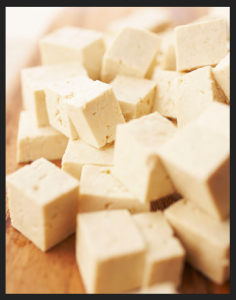 What Exactly IS Soy, and Soy Isoflavones?
What Exactly IS Soy, and Soy Isoflavones?
Soy contains a substance called, “phytoestrogen” aka: isofavones, which mimics natural estrogen. Soybeans contain two types of isoflavones; daidzein and genistein. These compounds are part of a larger group of plant chemicals, called flavenoids, that are common in MANY of the fruits, vegetables, and legumes we eat. BUT soybeans are the most concentrated form of isoflavones that we get in our diets. Isoflavones are produced by the soybean plant as part of their defense mechanism against insects, diseases, and drought.
It is a complete protein: Unlike many other legumes, soy is a “COMPLETE protein,” meaning that it contains all the amino acids that our bodies cannot make on their own and are high in protein which make them a mainstay in the vegetarian and vegan diets.
It is a 4 billion dollar business:The soy market is BIG business. In the US alone, WE consume in excess of $4 BILLION of soy products each year. Soy lobbies are equal to meat and dairy lobbies. At your local grocery store, you can get soy milk, soy cheese, soy yogurt, soy butter, ALL types of meat substitutes: like chicken, beef, hamburgers, sausages, really most food choices are now offered in a SOY alternative.
Here are some of the MOST popular topics in the soy debate:
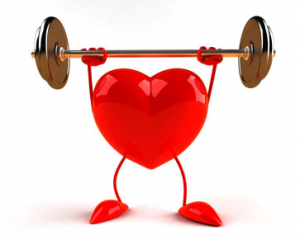 The PROS:
The PROS:
It MAY reduce heart disease: The Food & Drug Administration (FDA) asserts that 25 grams of soy protein per day, (which is considered the maximum intake) as PART of a healthy diet low in saturated fat and cholesterol, MAY help reduce the risk of heart disease. Many studies (approximately 80) over the last forty years, have concluded that soy protein DIRECTLY lowers LDL (bad cholesterol). Soy also contains ALA Omega-3 fatty acids which also play a strong role in overall heart health.
It MAY HELP Menopause symptoms This is one of the newest areas of research on soy. Studies of Asian women report that they suffer lower levels of hot flashes and night sweats as compared to Western women. A drop in estrogen levels are what causes hot flashes, night sweats, mood swings, and vaginal dryness. New studies are supplementing postmenopausal women with soy isoflavones because of their hormone properties to alleviate these symptoms.
It MAY treat and prevent osteoporosis In addition to other studies, Baylor College of medicine is clinically evaluating the use of soy for treatment and prevention of the bone disease of osteoporosis. Osteoporosis is most often seen in postmenopausal women with estrogen deficiency. It occurs when the body has difficulty forming enough new bone matter. As a result the bones become less dense and break more easily. Both types of soy isoflavones, daidzen and genistein can reduce bone loss and reduce the risk of fracture.
It MAY reduce or prevent some types of cancer It’s safe to say the verdict is STILL out on this one. There 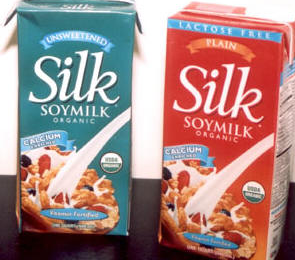 are conflicting studies that show that soy may or may not reduce or prevent the risk of hormone based cancers such as prostate or breast cancer. That being said, the American Cancer Society confirms that women with breast cancer CAN consume soy foods like edamame, tofu, and soy milk.
are conflicting studies that show that soy may or may not reduce or prevent the risk of hormone based cancers such as prostate or breast cancer. That being said, the American Cancer Society confirms that women with breast cancer CAN consume soy foods like edamame, tofu, and soy milk.
The CONS
It MAY cause Hypothyroidism Soy isoflavones negatively affect thyroid hormone synthesis by blocking the enzyme thyroid peroxidase. Your thyroid gland requires iodine for thyroid hormone production. Iodine cannot enter the thyroid gland without thyroid peroxidase oxidizing it, a process known as “organification.” Soy’s inhibitory effect on thyroid peroxidase enzyme may result in decreased amount of thyroid hormones and may create a hypothyroid state. However, if you have a diet with adequate iodine intake, this shouldn’t be an issue. The iodine helps offset the thyroid suppressing effects of soy. Patients who have been diagnosed with hypothyroidism are advised to avoid soy products as they can inhibit the effectiveness of their thyroid medications.
It MAY aggravate Gout: People with gout are advised to avoid soymilk because it contains moderate amounts of purines, natural components found in body tissues and some foods. Purines are broken down into uric acid that can irritate joint lining, causing intense pain, swelling and inflammation, known as gout.
It MAY cause fertility issues in women: Researchers found female monkeys who took soy supplements containing twice the level of the plant estrogens eaten by Asian women for a year did NOT experience any negative changes in their menstrual cycle or ovarian function that might affect fertility. There are not many studies done in this field, however some reports suggest that in countries where soy products are consumed in large amounts, the birth rate is no lower than in countries where soy is not routinely consumed.
 Will soy effect masculinity or fertility in men? There is no solid evidence that soy in moderate levels (5 to 25 grams a day) have any ill effects on a man’s masculinity. While research suggests soy may reduce the amount of testosterone in a man’s blood stream, so does fiber, which is also found in soy. This minimal drop in testosterone has not been shown to be a problem in men, and may in fact guard against some forms of prostate cancer. Studies also show that consuming soy isoflavones have no effect on sperm quality or quantity.
Will soy effect masculinity or fertility in men? There is no solid evidence that soy in moderate levels (5 to 25 grams a day) have any ill effects on a man’s masculinity. While research suggests soy may reduce the amount of testosterone in a man’s blood stream, so does fiber, which is also found in soy. This minimal drop in testosterone has not been shown to be a problem in men, and may in fact guard against some forms of prostate cancer. Studies also show that consuming soy isoflavones have no effect on sperm quality or quantity.
It MAY cause on-set of pre-mature puberty? Xenoestrogens are man-made compounds that mimic the behavior of natural estrogen in the body. They occur in just about EVERYTHING from plastic baby bottles and food storage containers (BPA) to shampoo, cosmetics, sunscreen, pesticides, insecticides used in residential and agricultural pest control and ESPECIALLY growth hormones FED to the animals that produce our meat, milk, cheese, eggs, etc. Phytoestrogens are the natural estrogen found in fruits, veggies, legumes, including soybeans. With ALL these extra hormones coming from SO many sources, it’s hard to determine which if any may be causing earlier on-set of puberty in children.
What about soy infant formulas? Soy formulas are generally recommended by pediatricians ONLY when 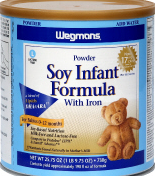 infants are ALLERGIC to regular infant formulas and are NOT recommended if an allergy doesn’t exist. Soy infant formulas come from soy beans which are “natural,” but soy formula is highly processed.
infants are ALLERGIC to regular infant formulas and are NOT recommended if an allergy doesn’t exist. Soy infant formulas come from soy beans which are “natural,” but soy formula is highly processed.
To make soy formula, the beans are processed chemically to extract and concentrate the protein and fat components, which are then mixed with sweeteners (in most cases, high fructose syrup). Soy infant formulas are also more caloric-ally dense than “natural” foods, including breast milk. Infants fed soy formula ingest 6 to 11 times more genistein (a soy isoflavone) on a body weight basis than the level known to cause hormonal effects in adults.
To date, only ONE study has looked at the long-term effects of soy formula on reproductive development in people. It found that women fed soy formula as infants had slightly longer periods and more menstrual cramping than those who were not fed soy formula. According to the American Association Of Pediatricians who reviewed the studies of effects of soy formulas on infants , they ruled there is NO conclusive evidence that it harms infant development, reproduction, or endocrine function.
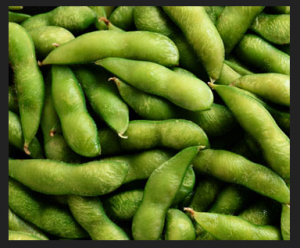 Which types of soy are best to eat? These are the purest, least processed forms of soybeans that are consumed in the Asian diets.
Which types of soy are best to eat? These are the purest, least processed forms of soybeans that are consumed in the Asian diets.
- Edamame – boiled soybeans
- Tofu – soybean curds
- Natto – fermented soybeans
- Miso – fermented soybean paste
- Yuba – by-product of soy milk
- Kinako – soy flour
- Soy sauce
- Tempeh
“Whole” soy foods made from whole soybeans often preserve more natural soy nutrition than do processed products made from isolated soy protein.
Which types of soy are best to avoid? Overly processed soy products such as real food “substitutes” should be avoided or eaten in moderation only. Other soy bi-products such as hydrolyzed soy protein, soy lecithin, soy protein isolates, defatted soy flour, organic textured soy flour, textured vegetable protein, soy concentrates and soy protein concentrates are all fillers used in MANY of our favorite food products.
How much is TOO much? Moderate soy protein consumption is considered 5 to 25 grams of soy protein per day.
Example:
- Tofu- serving size is 4 ounces, which contains 8 grams of soy protein
- Tempeh- serving size is 1 cup, which contains 31 grams of soy protein
- Edamame- serving size is 1 cup, which contains 17 grams of soy protein
I always ENCOURAGE you to eat organic, whole, unprocessed foods as often as possible, the same applies to soy. Do your best to eat the traditional forms of soy and make sure its organic, non-GMO (genetically modified  organism), or make it yourself. Eat in moderation, which is considered 5-25 grams of soy protein daily. ALWAYS do your own research, read nutrition labels and ingredients lists and make the best decision for yourself. YOU know your body better than anyone, so follow your body’s lead.
organism), or make it yourself. Eat in moderation, which is considered 5-25 grams of soy protein daily. ALWAYS do your own research, read nutrition labels and ingredients lists and make the best decision for yourself. YOU know your body better than anyone, so follow your body’s lead.
Excuses or solutions…YOU decide!
-Natalie Jill
Bloat, Fat, and Fatigue BE GONE! Give me 7 days to teach you the habits to get the weight off and change your life FOREVER! Start HERE
